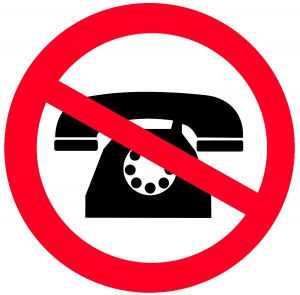 On July 2, 2014, the United States Court of Appeals for the Ninth Circuit issued a ruling outlining the vicarious liability pleading standard under the Telephone Consumer Protection Act (“TCPA”). Since the Federal Communications Commission’s (“FCC”) declaratory ruling in the Dish Network matter (See FCC Issues New TCPA Ruling on Telemarketing Liability), which held that sellers can be vicariously liable for the calls made on their behalf in violation of the TCPA, litigants have argued in court over how far this liability standard can extend, and in what scenarios it applies. Most district courts throughout the country have held that in order to be vicariously liable under the TCPA, a plaintiff must plead (and ultimately prove) that the seller exercised, or had the right to exercise, control over its third-party telemarketers. In its ruling, the Ninth Circuit expanded and discussed the application of TCPA liability under the scope of “apparent authority” and classical principles of agency.
On July 2, 2014, the United States Court of Appeals for the Ninth Circuit issued a ruling outlining the vicarious liability pleading standard under the Telephone Consumer Protection Act (“TCPA”). Since the Federal Communications Commission’s (“FCC”) declaratory ruling in the Dish Network matter (See FCC Issues New TCPA Ruling on Telemarketing Liability), which held that sellers can be vicariously liable for the calls made on their behalf in violation of the TCPA, litigants have argued in court over how far this liability standard can extend, and in what scenarios it applies. Most district courts throughout the country have held that in order to be vicariously liable under the TCPA, a plaintiff must plead (and ultimately prove) that the seller exercised, or had the right to exercise, control over its third-party telemarketers. In its ruling, the Ninth Circuit expanded and discussed the application of TCPA liability under the scope of “apparent authority” and classical principles of agency.
Thomas v. Taco Bell Corp.
The subject lawsuit involved an allegation that the plaintiff had received a text message advertisement sent to her cellular telephone on behalf of Taco Bell Corp. (“Taco Bell”) in violation of the TCPA. The text message at issue was sent by a third-party telemarketer retained by Taco Bell. The district court presiding over the case ruled that although sellers can be held vicariously liable for any TCPA violations made by their telemarketers, the facts at issue did not support such a finding against Taco Bell because it had not controlled the manner and means by which the text message campaign that ultimately resulted in the plaintiff’s receipt of the subject text message was conducted. Therefore, the Court ruled that Taco Bell cannot be held vicariously liable for the TCPA violations alleged in the plaintiff’s complaint.
The Ninth Circuit affirmed this ruling. In doing so, the Court of Appeals determined that a seller may be vicariously liable under the TCPA if a plaintiff can demonstrate that the telemarketer had “apparent authority” from the seller when the subject call or text was sent. Additionally, the plaintiff must allege and prove that the seller has ratified any conduct by the telemarketer that violated the TCPA.
Potential Impact
The FCC’s ruling in the Dish Network matter expanded, to some degree, the scope of liability under the TCPA. Although the express language of the statute places liability on the caller, the FCC has implemented rules or, as it has referred to them, “appropriate incentives,” for sellers “to monitor and police TCPA compliance by third-party telemarketers.”
The Ninth Circuit’s ruling has put this into perspective. A direct agency relationship, where the seller exercises control over, or has the right to control, a particular marketing campaign, may render the seller vicariously liable for any resulting TCPA violations of the telemarketer. However, if there is no such control, a plaintiff must overcome the high hurdles of demonstrating both a manifestation of authority in the marketer by the seller to the plaintiff, reasonable reliance on such manifestation, an underlying agency relationship between the seller and telemarketer, and the seller’s profit from the telemarketer’s conduct.
Protect Yourself
Potential plaintiffs and plaintiffs’ lawyers have endeavored to stretch the scope of the FCC’s Dish Network ruling by attempting to extend TCPA liability to anyone and everyone in a particular marketing chain. Although in most cases these attempts should ultimately prove fatal, it does not save businesses the expense of defending themselves in baseless TCPA litigation.
If you are interested in reviewing your marketing practices, or if you have been served with legal process relating to the TCPA, please e-mail us at info@kleinmoynihan.com or call us at (212) 246-0900.
The material contained herein is provided for informational purposes only and is not legal advice, nor is it a substitute for obtaining legal advice from an attorney. Each situation is unique, and you should not act or rely on any information contained herein without seeking the advice of an experienced attorney.
Attorney Advertising



